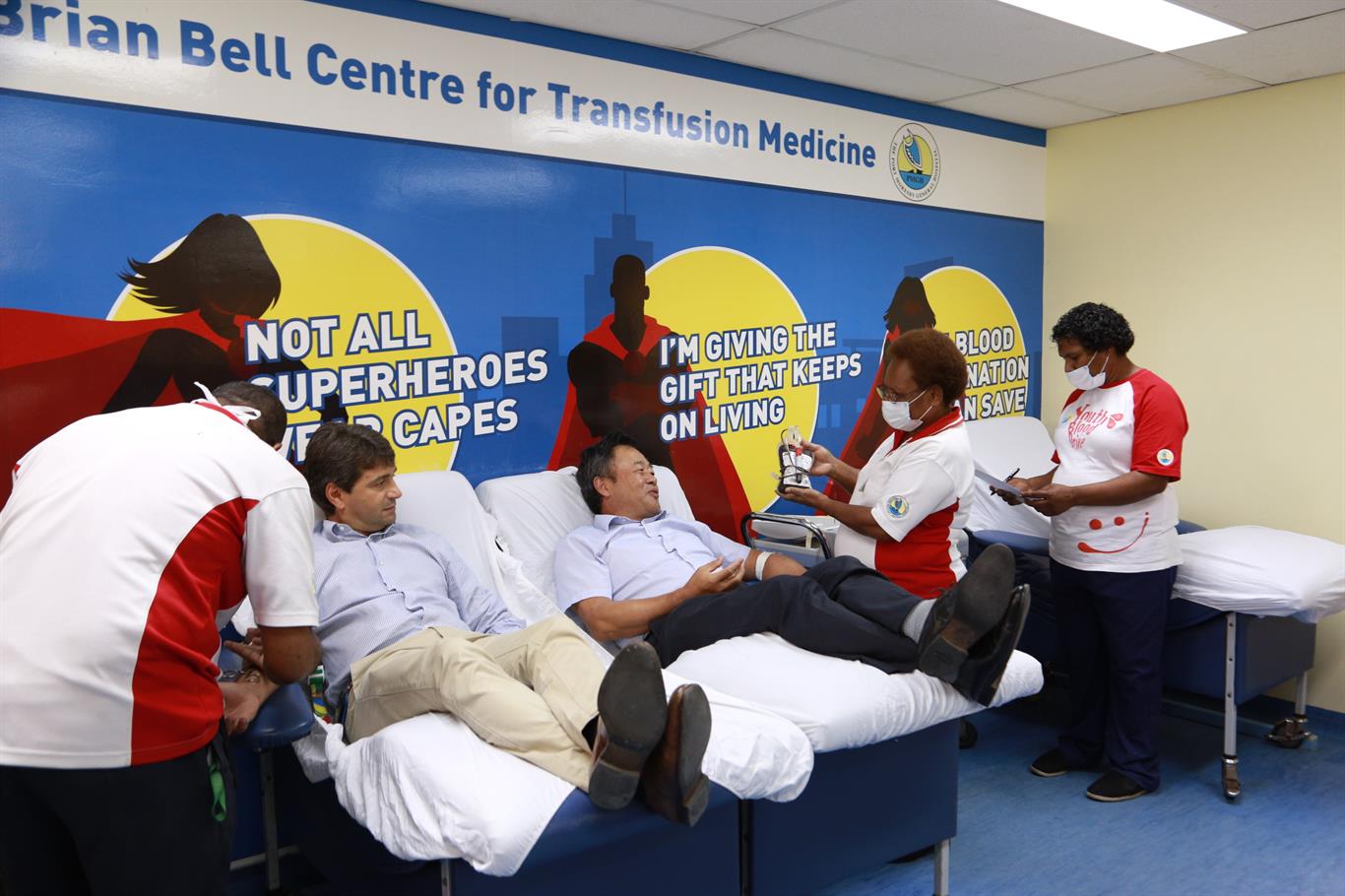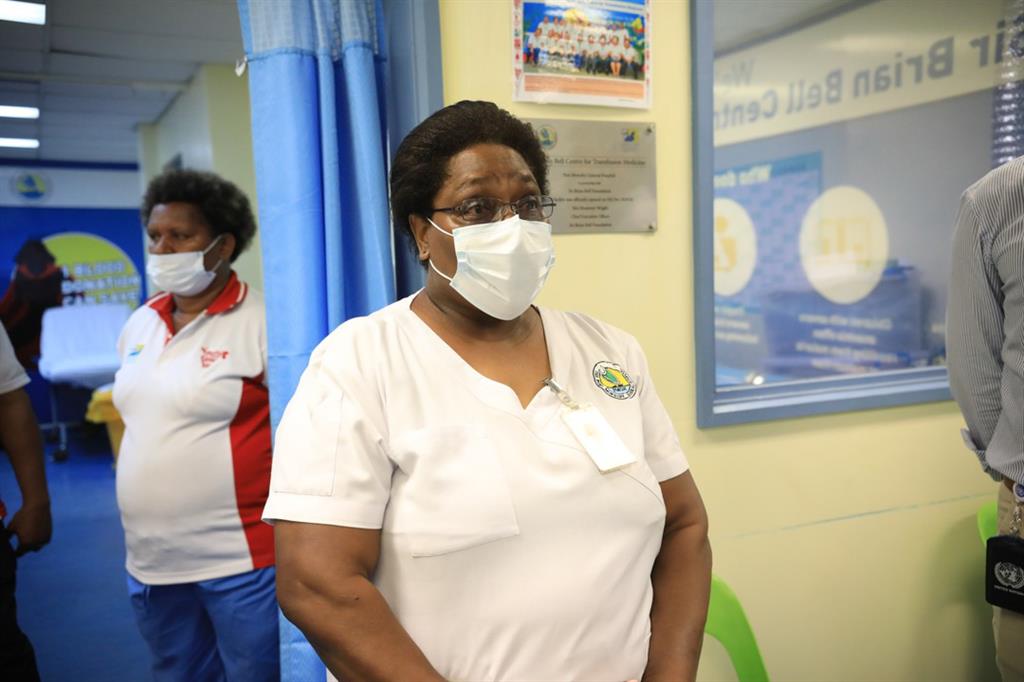
If you have ever donated blood, thank you!
If you haven’t and are healthy and able to, it’s never too late to donate blood and help save a life. Because every few seconds, someone, somewhere, needs blood.
On June 14, we celebrate World Blood Donor Day. The theme for this year’s World Blood Donor Day is “Safe blood saves lives” with the slogan “Give blood and make the world a healthier place”. It’s a day that Papua New Guinea joins the international community in thanking voluntary, unpaid blood donors for their life-saving gifts of blood.
The day also raises awareness of the need for regular blood donations, to ensure that those who need it have access to supplies of safe and quality-assured blood and blood products.
Transfusions of blood and blood products save millions of lives every year. “We need blood and plasma products every day to support cancer patients, new mums and babies, people with immune deficiencies or blood diseases, and people who need surgery,” said Dr Luo Dapeng, WHO Country Representative in Papua New Guinea.
“Blood donation is even more essential during the Coronavirus pandemic, where people may be less inclined to donate blood,” says Dr Luo. Currently, there’s no evidence anywhere in the world that coronavirus or other respiratory viruses can be transmitted through blood transfusion.
“At a time of crisis, when social distancing is the new normal, we need to remind ourselves of the importance of solidarity and generosity. A small gesture like donating blood, can make a big difference to the life of people. As we celebrate World Blood Donor Day on June 14, we celebrate also human kindness,” adds UN Resident Coordinator in PNG, Mr Gianluca Rampolla.
Sir Brian Bell Centre for Transfusion Medicine blood bank at the Port Moresby General Hospital have implemented new measures during the State of Emergency to ensure the safety of staff, donors and patients receiving transfusions.
The blood bank is safe to visit and it is still safe to give blood. Only healthy people are eligible to give blood with donors screened upon entry for any indication they may be unwell. Physical distancing and hygiene measures are also in place, including screening of donors, wearing gloves, and wiping down surfaces after every donation.
New donors are always needed to replace those who are unable to give because of illness or other circumstances. It takes less than an hour to give blood, but it could change someone’s life.
One day it might be someone you love who needs blood. Or, it might even be you.
Below are some frequently asked questions about blood donation.
Who can donate blood?
- If you are between 18 and 60 years of age
- In good health
- Weigh at least of 50kg for males or 45kg for females; and,
- With good blood pressure.
Before donating blood, make sure you:
- Drink enough water
- Get enough rest
- Avoid smoking and drinking alcohol
- Avoid heavy physical activity
- Eat enough food rich in iron and protein
How long does it take to replenish the donated blood?
The human body replenishes the blood volume within 24 hours. Red blood cells are replaced within 3 to 4 weeks and the lost iron in 6 to 8 weeks.
How often can you donate blood?
Each person can donate regularly. Men can donate every 3 months and women, every 4 months.

For more information about blood donation, contact the National Department of Health – National Blood Transfusion Service at 325 1066 or go to your local Blood Transfusion Centers and Blood Banks at the provincial and district hospitals.
